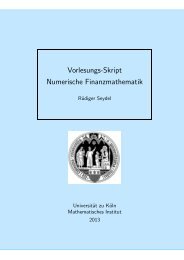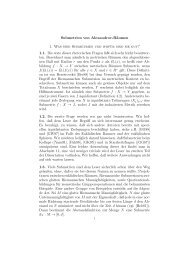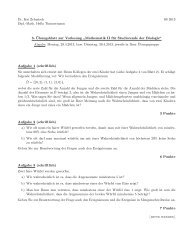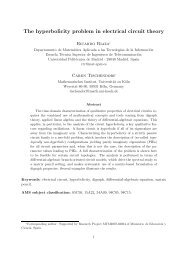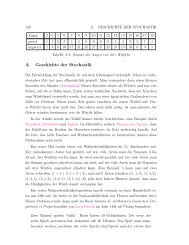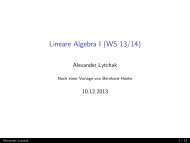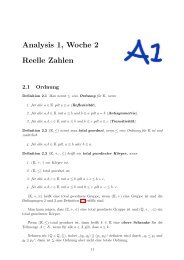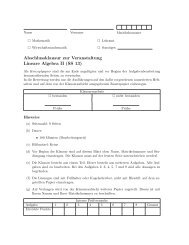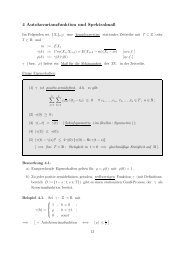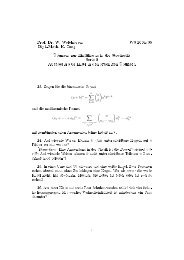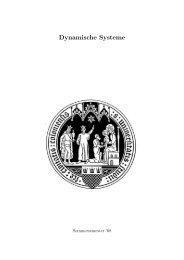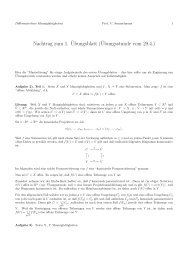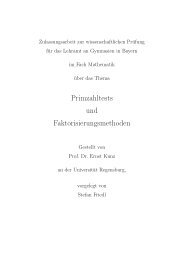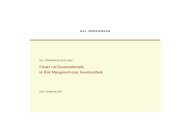Inhaltsverzeichnis - Mathematisches Institut der Universität zu Köln
Inhaltsverzeichnis - Mathematisches Institut der Universität zu Köln
Inhaltsverzeichnis - Mathematisches Institut der Universität zu Köln
Create successful ePaper yourself
Turn your PDF publications into a flip-book with our unique Google optimized e-Paper software.
DMV Tagung 2011 - <strong>Köln</strong>, 19. - 22. September<br />
Frank Filbir<br />
<strong>Institut</strong> für Biomathematik und Biometrie, Helmholtz Zentrum München<br />
Approximation on manifolds<br />
In many practical applications, for example document analysis, semi-supervised learning, and inverse<br />
problems one is confronted with functions defined on a (Riemannian) manifold M imbedded in a high<br />
dimensional ambient space. These functions have to be approximated by using sample values of the<br />
function. Due to several restrictions like experimental setup etc. we can hardly assume that the sampling<br />
nodes are located on a regular grid. This means we have to come up with an approximation process which<br />
can, on the one hand, work with scattered data and, on the other hand, has sufficiently good approximation<br />
rate. We consi<strong>der</strong> approximation processes of the form<br />
σL f (x) =<br />
∞<br />
∑<br />
j=0<br />
H �ℓj �<br />
〈 f ,φj〉φ j(x),<br />
L<br />
where H is a suitable filter function and {φ j} is an orthonormal function system on the manifold M. In or<strong>der</strong><br />
to get an approximation process which has the aforementioned properties it is necessary to construct<br />
quadrature formulas with certain degree of exactness. In this talk we will address this problem and we will<br />
show how this is related to the problem of constructing well localized kernels on M. This talk is based on<br />
joint work with Hrushikesh N. Mhaskar, Department of Mathematics, California State University, U.S.A.<br />
Michael Pippig<br />
Technische <strong>Universität</strong> Chemnitz<br />
Parallel fast fourier transforms and their application to particle simulation<br />
The direct computation of Coulomb interactions in large particle systems is a computational demanding<br />
problem. For periodic boundary conditions, Ewald proposed to split the interactions into two fast converging<br />
parts. While the first part is short ranged and includes the singularity, the long ranged and smooth<br />
part converts fast in Fourier domain. Using nonequispaced fast Fourier transforms, the calculation of the<br />
smooth part can be further sped up. This leads to a fast algorithm comparable to the particle-particle<br />
particle-mesh method. During this talk, we develop an algorithm for the massively parallel computation of<br />
the equispaced fast Fourier transform, generalize it to the nonequispaced case and apply it to parallelize<br />
the fast Ewald summation. The resulting algorithm will be compared to other algorithms for the fast<br />
computation of Coulomb interactions.<br />
116



